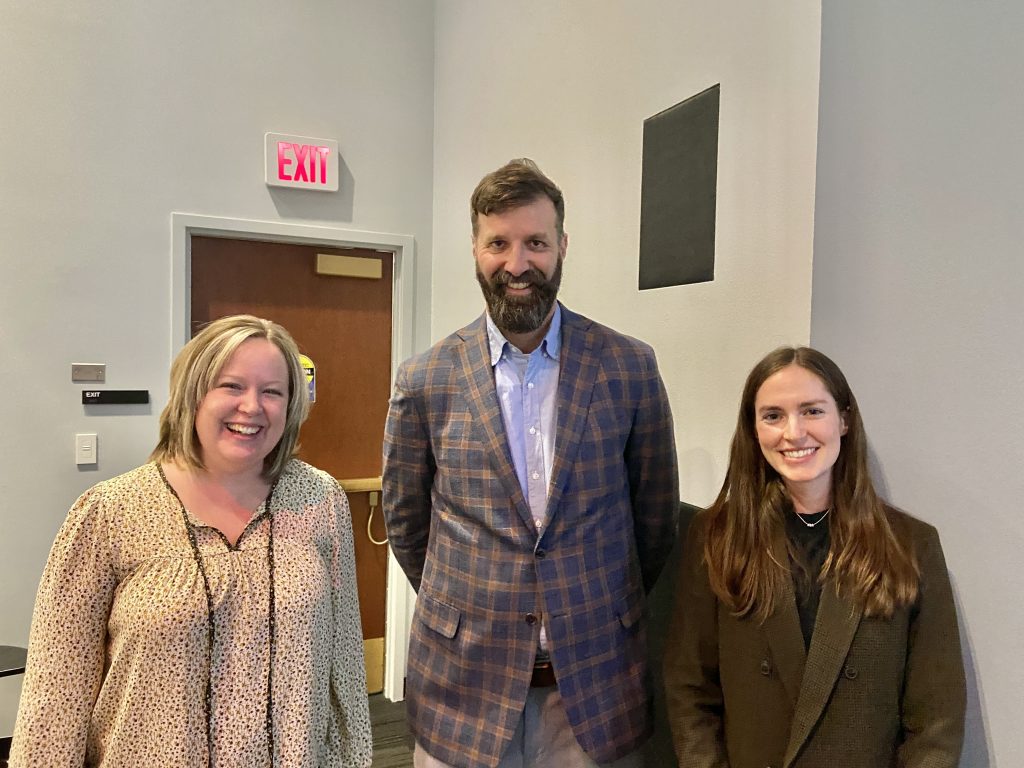Recent History Department Speakers
History in the Headlines
Dr. Cristina Maria Garcia and Climate Migration
In mid-September, the Department of History hosted its first “History in the Headlines” speaker of the year, Dr. Cristina Maria Garcia, Howard A. Newman Professor of American Studies at Cornell University. Entitled “Climate Migration: The Environmental and Policy Disasters that Drive Migration from Central America,” Dr. Garcia highlighted the intersections between the history of US imperialism and climate change that have contributed to so-called natural disasters and the displacement of vulnerable populations. Her talk emphasized the need for transnational cooperation to develop a humane climate refugee policy as well as a comprehensive plan to slow climate change and allow Caribbean and Central Americans to better resist its effects.
The talk attracted approximately 100 students, faculty, and members of the Flagstaff community, who contributed to a lively discussion about how Americans can best advocate for improved immigration and environmental policies.
Dr. Jon Hale and the History of School Choice

Above: Christi Carlson, Dr. Jon Hale, and Dr. Lauren Lefty at the History of School Choice talk.
The Department of History’s second “History in the Headlines” event was on November 8 and featured Dr. Jon Hale, Associate Professor of Education Policy, Organization, and Leadership from the University of Illinois Urbana-Champlain. Entitled “The Education Revolution in Arizona: How School Choice has Challenged the Promises of Public Education, 1954-2023,” Dr. Hale traced the origins of school choice to Southern resistance to desegregation. White southerners used the language of “freedom of association” to justify their retreat from public schools, a discourse that intersected with the growing popularity of marketplace reform ideology. School choice thus expanded northward and westward, with Arizona pioneering the voucher program in 1997, when Governor Fife Symington signed a private tax credit law that would set the stage for Arizona’s School Tuition Organizations—or STO vouchers. Since then, the STO program has grown by 4,000% and costs the state more than $160 million per year.
Even as Dr. Hale emphasized the devastating consequences of school choice for public education, he pointed out that it has also appealed to marginalized communities who have suffered disproportionately from the disinvestment in public education. He concluded by expressing hope that Americans will recommit to the values of democracy and the public good.
Dr. Hale clearly inspired his audience of about 125 faculty, FUSD teachers, and students, many of whom are training to be teachers.
Generous support from the McKenzie Endowment for Democracy helped to make this event possible.
Dr. James Mestaz and the Mayo Struggle for Water Rights
For Native American History Month, the Department of History hosted Dr. James Mestaz, Assistant Professor of History at Sonoma State University, who discussed his recent book, Strength from the Waters: A History of Indigenous Mobilization in Northwest Mexico (University of Nebraska Press, 2022). Mestaz explained how Mexican commercial agriculture, urbanization, and reclamation diverted water from the Fuerte River, which was the lifeblood of the Mayo peoples in Sinaloa, and how the Mayo mobilized in the mid-twentieth century to protect their access to the river. The audience of students and faculty was clearly inspired by how creative adaptation of technology and grassroots mobilization served to remake and reaffirm Indigenous culture and identity.
Wendsler Nosie, Sr. and the Movement to Protect Oak Flat
The Department of History provided co-sponsorship for an event organized by Applied Indigenous Studies featuring Wendsler Nosie, Sr., a leader in the movement to preserve and protect Native American culture, artifacts, history of religion, and tradition. Nosie has been active in efforts to protect Oak Flat, land sacred to the San Carlos Apache and the Navajo, from a land exchange scheme that would open it to international mining interests. In November 2019, Nosie and his family established an encampment at Oak Flat as part of its work with Apache Stronghold, a community organization dedicated to bringing Native and non-Native allies together to preserve this ceremonial site and others from destruction.